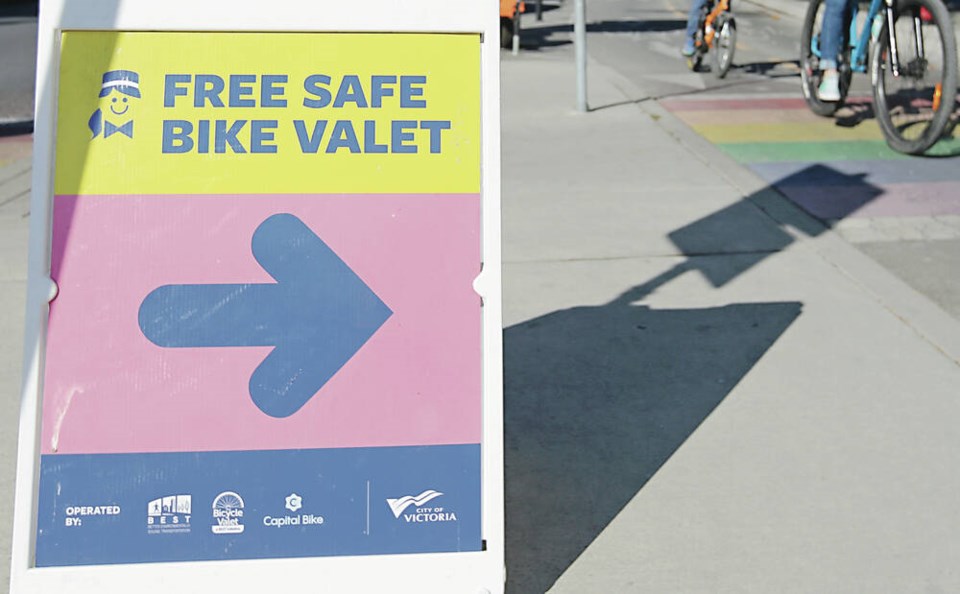A commentary by a Victoria resident.
Life does imitate art, and sometimes that art is management satire from the 1950s.
The frequently tongue-in-cheek historian and writer Cyril Parkinson once observed that “the time spent on any agenda item will be in inverse proportion to the sum [of money] involved.”
He dramatized this “Law of Triviality” with the example of a committee that has on its agenda proposals for a power plant and a bike shed.
Since almost no one feels equipped to discuss the nuances of a power plant, and the bike shed is easily understood, the committee all but skims past the £10 million power plant and spends 45 minutes arguing the minutiae of the £350 bike shed in painstaking detail.
This tendency to overindulge the trivial is now called “bike-shedding.” How poetic that in Victoria, we are now bike-shedding over a bike shed.
A recent guest column in this paper labelled the notion of charging a fee for the bike valet “amateur-hour economics.” It would be more accurate to diagnose our shared problem as amateur-hour politics.
Bicycles do have significant direct and indirect benefits to Victoria residents, including those who are not cyclists. A service that offers peace of mind to cyclists allows more trips to be completed on bike with confidence.
Bike theft is an expensive risk for cyclists, and a secure parking site offers a present and practical solution. All of these points are defensible, and a council that is open to piloting new ideas is preferable to one that is not.
What is dismaying is the blanket rejection of any fee at all for the bike valet. A toonie would still leave bikes the least expensive mode of transport save walking — cheaper certainly than parking a car downtown, and cheaper even than a one-way transit ticket.
The cost is magnitudes lower than that of having one’s bike stolen.
The bike valet at city hall has served 37,000 users in just under nine months, which would have generated $74,000 in revenue at $2 per user, or more than $100,000 annualized. (Given the ratio of cost to benefit, demand is likely inelastic at this price level — we will never know without experimenting.)
A self-funding model would shield the bike valet from criticism or cancellation on grounds of cost, while securing for it stability and its own resources to reinvest and scale into a mature and popular service.
This is good, and it meets our political consensus where it is right now. Insisting that the bike valet must be free at the point of use risks moving the discourse in the direction of no bike valet at all. Absolutism invites absolutism.
When we look with envy at extensive bike garages in the Netherlands or the transformation of Paris under Mayor Anne Hidalgo, we are looking at overnight successes a generation in the making.
There is more support for cycling now than even a decade ago, but it is far from a consensus view, or there would not be this conflict over the bike valet in the first place.
Building that consensus will require patience and humility.
It will require some concessions to competing priorities along the way, without compromising on direction. It will require continuous communication with the public, and among council.
It will require, in other words, able politics and good government.
The lack of formal parties at the local level should in theory be liberating, freeing Victoria council to work collegially, form fluid alliances, and find common ground on a case-by-case basis to move files forward.
Councillors — for this issue and beyond — should find the will to set aside partisan assumptions and look for ways to get to yes, and then move on to the next item on the agenda.
This has consumed too many cycles for an item that is less than one-tenth of one per cent of the city’s $300 million-plus budget, and spinning our wheels in place does not contribute to our momentum as a city.
>>> To comment on this article, write a letter to the editor: [email protected]



